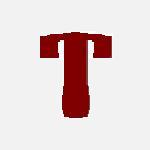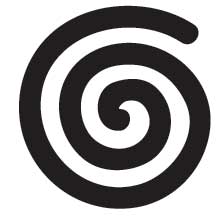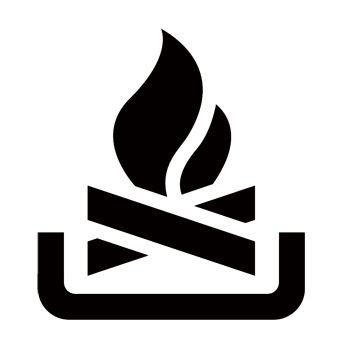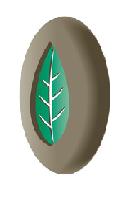Low Deities (World of Tyrus Supplement)
These gods and goddesses rule over the world and its aspects. The elements and such. Clerics of these deities are rare and sparse.
Liddel[edit]
| Greater Deity | |
|---|---|
| Symbol: | Spiral |
| Home Plane: | Ysgard |
| Alignment: | Chaotic Neutral |
| Portfolio: | Air |
| Clergy Alignments: | True Neutral, Chaotic Neutral, Neutral Good, Chaotic Good |
| Domains: | Creation, Air, Good, Chaos, Weather |
| Favored Weapon: | Longbow |
Liddel was one of the first gods to be created by Claud. He is very whimsical and is almost always in a good mood. He controls all aspects of air in Tyrus, often creating storms and things just for the fun of it. Liddel gets along fine with most of the other deities, except for Bonna. Bonna, the goddess of Earth, is always arguing and fighting with Liddel. The two have very different views on the world, especially because of the difference in their domains.
Dogma[edit]
Liddel churches preach to live life traveling and to enjoy the weather when it is well They look down on pollution-making practices like blacksmithing and the burning of things, although they themselves often benefit from these actions.
Clergy and Temples[edit]
Churches dedicated to Liddel are few and sparse. They are often located in the mountains or on cliffs. A lot are near the sea, but usually on higher ground so they get a good breeze of the ocean. Liddel clergy are excitable and talkative, usually coming from artistic backgrounds. Many bards and other forms of performers become clerics of Liddel. They are also often individualistic and preachy. They worship Liddel for his control over the weather. His clerics believe in individuality, often telling people they are uptight straight to their face.
Vy'en[edit]
| Greater Deity | |
|---|---|
| Symbol: | Bonfire |
| Home Plane: | Outlands |
| Alignment: | True Neutral |
| Portfolio: | Fire |
| Clergy Alignments: | Any |
| Domains: | Creation, Fire, Destruction, Sun, War |
| Favored Weapon: | Rapier |
Vy'en is one of the first handful of deities created by Claud. He is the master of fire in Tyrus, a god who values freedom and expression. Vy'en is not one to interfere much with matters with the material plane, but merely observes. He is completely neutral in all affairs, fire being used both for production and for destruction.
Dogma[edit]
The Vy'en church is one of minimalism. They preach the careful moderation of fire and other destructive powers. A major rule they live by is that "All things destroyed must be recreated in another form." That rule is open to interpretation.
Clergy and Temples[edit]
Vy'en priests are usually not very open about their religion. They are observers, not missionaries. They do not preach much at all. Many Vy'en clergy are wizards or sorcerers, though farmers make up a portion as well. Vy'en churches are usually made of stone and adorned with many forms of torches and candles. The fires are kept going all day and all night by special clergymen.
Que-Pi[edit]
| Greater Deity | |
|---|---|
| Symbol: | Water drop |
| Home Plane: | Outlands |
| Alignment: | True Neutral |
| Portfolio: | Water |
| Clergy Alignments: | Any |
| Domains: | Creation, Water, Darkness |
| Favored Weapon: | Spear |
Que-Pi is the goddess of water in all its aspects. She was one of the first gods Claud created to help keep control over Tyrus. She is almost emotionless, taking neutrality to a new level. Her clergy do not ask for intervention, and she does not give any.
Dogma[edit]
Que-Pi Temples teach their disciples to avoid conflict and confrontation. They are taught that their lives will be much more desirable if they remove stress and conflict from their lives. Any form of conflict is frowned upon.
Clergy and Temples[edit]
Because of the Que-Pi Temple's strong hold on neutrality, most Clerics of Que-Pi that adventure or battle are not very religious. At the most they try to avoid fights, but in order to be a true Que-Pi worshiper, you must give up the life of questing and battling. A Que-Pi Temple is usually situated on the shore of a body of water, be that a stream, river, ocean, or lake. Fountains, or sometimes a moat, surround the temple. The temple is almost always made of white stone, though the type of stone varies from area to area. Small boats are taken onto the nearby body of water to make offerings of good fortune to Que-Pi.
Bonna[edit]
| Greater Deity | |
|---|---|
| Symbol: | Leaf inside of a stone |
| Home Plane: | Acheron |
| Alignment: | Lawful Neutral |
| Portfolio: | Earth |
| Clergy Alignments: | True Neutral, Lawful Neutral, Neutral Evil, Lawful Evil |
| Domains: | Creation, Earth, Evil Domain, Law, Artifice, Plant |
| Favored Weapon: | Club |
Bonna is the hardy goddess of earth in Tyrus. Created by Claud when he first made his deities, Bonna has always been tough and lawful. She believes in hard work and that is one of the core values her clergy preach. Bonna is always on bad terms with Liddel, the whimsical god of air. He does not get along well with her structured way of viewing things.
Dogma[edit]
Churches of Bonna preach hard work and dedication. There is no slacking off in their religion. Nothing of good use is ever gained without earning it.
Clergy and Temples[edit]
Many farmers and other laboring professions choose to become clergy in a Bonna church. Hardy druids have been known to worship Bonna as well. Bonna churches are made from thick stone, wood, or other materials. They are always made large, even in small towns. Often the clergy there will produce some sort of product and sell it as a testament to their work-ethic.
Back to Main Page → 3.5e Homebrew → Campaign Settings → World of Tyrus
| World of Tyrus Campaign Settingv | ||||||||
|---|---|---|---|---|---|---|---|---|

|
Player's Handbook | Character Creation, Races, Classes, Feats & Flaws, Magic, Equipment | ||||||
| World Reference | Monster Manual, History, Religion, Legends & Myths, Geography, Cosmology, Groups, NPCs | |||||||
| Dungeon Master's Guide | About Project Tyrus, Adding to Tyrus, Variant Rules, Adventures, Dangers, Resources | |||||||
| ||||||||



